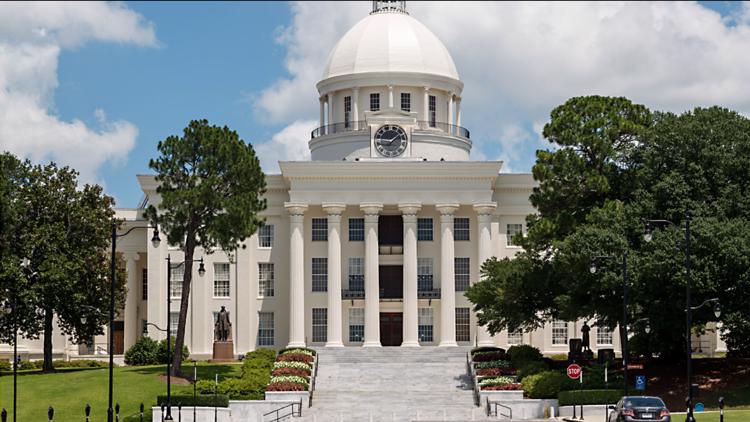MONTGOMERY, Ala. — Alabama lawmakers face critical spending decisions on a budget surplus and pandemic relief dollars as they return to Montgomery on Tuesday for a legislative session where nearly one in four members is newly elected.
Lawmakers must decide how to use the remaining $1 billion from the American Rescue Plan Act — the relief plan approved by Congress to help the country climb out of the coronavirus pandemic — and an unusual $2.7 billion surplus in the state education budget. Tax rebates and tax cut proposals will be introduced, Republican lawmakers said. Alabama House Democrats, who hold a minority of seats, introduced an agenda that included removing the sales tax on food — as well as continuing to push for Medicaid expansion.
Senate President Pro Tem Greg Reed said the top three priorities in the Senate will be the state budgets and how to use the surplus, allocating the remaining pandemic relief funds and the renewal of economic incentive law that allow the state to provide tax credits and other benefits to recruit industries to the state.
Reed said he expects lawmakers to focus early on allocating the pandemic relief funds. “The attitude is how do we make sure that we’re spending these dollars in a way that offer ongoing benefit, not just spend the money and it’s gone,” Reed said. Unlike when Alabama used a portion of its pandemic relief funds for prison construction, states face stricter rules this time around for using American Rescue Plan funds.
Alabama lawmakers are expected to take up a $500 million tax rebate proposal as they see a rare budget surplus. Rebates of $200 for single taxpayers and $400 for married couples, with the possibility of more for families with dependents, are under discussion, Republican Sen. Arthur Orr, who chairs the education budget-writing committee said.
“The money came from the people and in my opinion we need to send a hefty portion back to the people that we got it from. Because of high inflation, a lot of people are hurting across the state. Now, will a $200 check radically change that? Not radically, but it will help,” Orr said.
The Associated Press reported in August that at least 15 states have approved one-time rebates from their surpluses.
Orr said tax cuts will also be up for discussion. However, Reed said lawmakers must exercise caution because “we have to be very cognizant nationally that a recession is, more than likely, on the way.”
"We just need to be very sensitive with the fact that if we want to change the tax structure in some way that we’re not in a place three years from now, where we say, ‘Oh my goodness, we had surpluses, and then we made some choices that weren’t prudent,’" Reed said.
Alabama House Democrats said they will push proposals to remove the state’s 4% sales tax on groceries and also to expand Medicaid.
“It's a very regressive tax. You are punishing the poor, the poorest among us,” Democratic Rep. Prince Chestnut said of the state sales tax on food.
Removing the sales tax on food has long been discussed in Montgomery— introduced repeatedly since at least 1999. But it has never passed because of the cost, previously estimated at $500 million annually. Democratic Rep. Mary Moore argued that establishing a state lottery could be one option for replacing the lost revenue.
Alabama is one of 11 states that did not expand its Medicaid program under the Affordable Care Act. Democratic lawmakers in Alabama have long called for Medicaid expansion, arguing it would bring health care coverage to more than 300,000 people, many of them in working families who don’t have health insurance through their jobs. Republicans, who hold a lopsided majority in the Alabama Legislature, have so far opposed expansion.
“That’s what Medicaid Expansion really is— providing healthcare for the working poor, people who have one or two jobs," House Minority Leader Anthony Daniels said. He said it would also help small business owners who struggle to provide health insurance for employees.
Democrats hold 28 seats in the House, meaning any Democratic proposals will need significant support from some of the 77 Republicans in the chamber order to pass.
The session brings many new faces to the Statehouse. There are 31 freshmen in the 105-member House of Representatives.
The legislative session begins at noon. Alabama Gov. Kay Ivey, who is beginning her final full term after winning election in November, will address lawmakers Tuesday night in her annual State of the State address.



